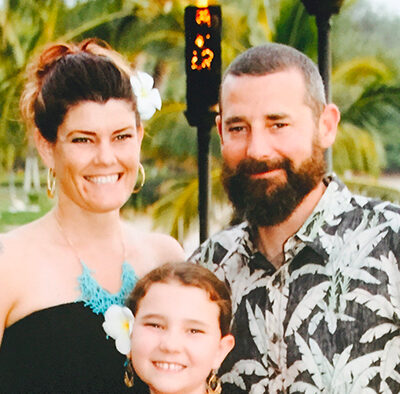
Patient First
We're committed to helping patients at all stages of cancer live longer and healthier lives through the power of blood tests.
We're Here to Listen
Patients are at the heart of our mission and they are the inspiration behind what drives us every day. By connecting with patients and caregivers, we gain insights into the challenges they face at all stages of the journey. Hearing patients’ stories and experiences enables us to make sure we are directly addressing unmet needs in meaningful ways. And sharing these stories enables us to inspire, motivate, and support other patients along the way.

We're Here to Help
Building meaningful collaborations with patient communities and advocacy organizations allows us to educate and support patients with the resources they need and collectively advocate for more research, funding, and access to care.
Our Partnerships
At Guardant Health, we strongly believe in the power of partnership. Here is just a small snapshot of some of our recent work:

Supporting the Creation of the Colon Cancer Coalition’s Survivorship Council
We were pleased to support the 2022 launch of the Colon Cancer Coalition’s first Survivorship Council, inclusive of 17 patients, survivors, and caregivers impacted by colorectal cancer, brought together for not only connection and support, but to share their unique perspectives and help inform and improve future awareness and educational efforts in the colorectal cancer treatment and screening space.
Read more on coloncancercoalition.org

Partnering with Susan G. Komen® to Develop Clinical Studies
We've partnered with Susan G. Komen, the world’s leading breast cancer organization, to develop clinical studies designed to help identify patients with early-stage breast cancer who may benefit from additional monitoring or therapy. Our collaboration will help researchers understand the value of monitoring for residual or recurring disease in patients treated for breast cancer with the Guardant Reveal® blood test.
Read more on Komen.org

Raising Awareness of the Importance of Colorectal Cancer Screening
With approximately 150,000 new cases of colorectal cancer diagnosed each year1 – spreading the word about the value of screening is more critical than ever. In honor of CRC Awareness Month in March, we annually collaborate with Fight Colorectal Cancer to educate the population on when to screen, how to screen, and to offer encouragment for them to take action with their health.
Read more on FightColorectalCancer.org
Our Research and Products
Bringing innovation to the field of cancer care is only possible with strong patient engagement. We are proud to partner with patients to help inform our study designs and to get groundbreaking and quality research underway with leading investigators at medical centers and biopharmaceutical companies to help transform how cancer is detected, treated, and managed.
If you are interested in participating in a study, or you would like to learn more about the breadth and progress of our expanding research, you can view our clinical studies. And if you’d like to explore our current product portfolio and see what we are offering patients today, please browse our products.
Our Commitment to Access
We believe all patients deserve access to the healthcare they need. Our Guardant Access program helps patients navigate insurance eligibility, manage claims appeals, answer billing questions, and determine financial assistance eligibility for our tests.
To learn more about how Guardant Access may be able to help you, please contact us.
For Oncology Support:
Email: clientservices@guardanthealth.com
For Shield™ Patient Support:
Phone: 1.855.722.7335, ext. 1, then press 2
Email: screeningpatient@guardanthealth.com
Contact Our Patient Advocacy Team:
Discuss a possible collaboration, learn more about our advocacy initiatives, or to share your story.
Email: patientadvocacy@guardanthealth.com
Helping Patients at All Stages of Cancer
Discover how we're leveraging precision oncology to provide patients and their doctors critical insights that can inform decisions at all stages of cancer.
Our Approach





